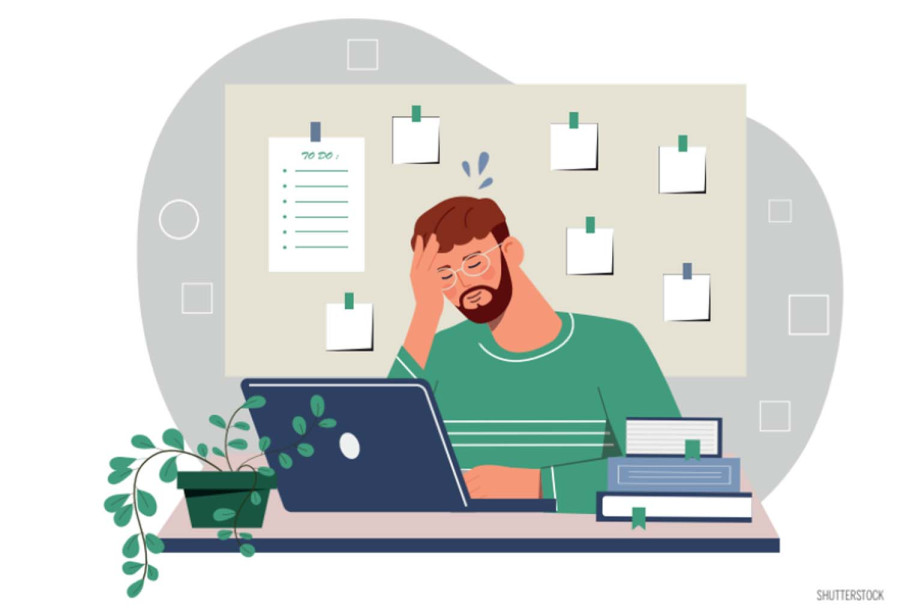Culture & Lifestyle
When to quit your job?
Many believe their professional and personal lives are separate, but they inevitably affect each other.
Dipesh Tandukar
When is the right time to leave your job? This question troubles many individuals, leaving them uncertain about whether or not to move on. Often, the fear of not finding another job, anxiety about change, or a sense of loyalty to their employer holds them back—even when they know leaving could lead to greater happiness.
The main challenge, however, is that many people struggle to identify the right moment to leave. They remain unsure if making such a decision is the right call.
One of the best ways to know whether or not the workplace is right for you is to see if that workplace contributes to your personal or professional growth. If you are learning new skills and these experiences are helping you grow as an individual, it’s often a good idea to continue working there. However, if this growth is missing, it might be time to question whether the workplace is right for you.
Another important factor is financial compensation. If you feel adequately rewarded for your efforts, many would argue it’s worth staying. While these are common considerations when evaluating a job, they are not the only ones. There are many other aspects to consider when determining whether to stay or move on.
Those employed will likely agree that, after a certain point, financial incentives tend to lose their appeal, and people begin to seek fulfilment beyond what their workplace can offer. Ideally, this is when individuals reassess their priorities. However, reality often tells a different story. Many people remain in jobs they dislike for years simply because they feel tied to their invested time. Phrases like “I can’t quit now—I’ve been here for too long,” are common.
Another important factor is burnout—a state of emotional, physical, and mental exhaustion caused by excessive and prolonged stress. Burnout often creeps up gradually, making it easy to dismiss early signs. Perhaps you have felt drained, struggled to concentrate and wished for a break or time off without worrying about work. If so, you might be experiencing symptoms of burnout. Burnout often occurs when you’re dealing with a high workload, tight deadlines, or a lack of proper work-life balance—when most of your waking hours are spent worrying about tasks rather than enjoying time with loved ones or pursuing activities you truly enjoy.
Burnout can significantly impact your mental health, relationships, and self-esteem. Those experiencing it often feel irritable, unmotivated, and perpetually fatigued. It’s important to understand that burnout isn’t just a phase; it’s a signal that you must reflect on whether your workplace is worth the toll it’s taking on you and your loved ones.
Many assume that their professional and personal lives are separate and unrelated. However, the reality is that what happens in one inevitably affects the other. This is why choosing a positive and supportive workplace is so important. Your work environment can significantly influence how you manage yourself at home and in your personal life.
Leaving a job isn’t just about escaping negativity—it’s about pursuing opportunities that align with your values and aspirations. If your current workplace doesn’t support your goal, it might be time to start exploring alternatives. Even high-paying jobs can feel unfulfilling if they don’t resonate with your core values. Sometimes, a lower-paying role that aligns with your goals and passions can be a far better alternative for personal and professional fulfilment.
Of course, quitting isn’t a decision to be taken lightly. It’s essential to prepare. Before actually quitting, consider the financial situation you are in right now, update your resume and start exploring new opportunities. If you’re unsure, ask yourself: “Am I learning and growing in my current role?” “Do I feel supported and valued?” “Do I have a work-life balance?” If the answer to most of these is “no”, it might be time to start planning an exit strategy.
The choice is always yours to make, but asking yourself these questions time and again will help you keep track of what you want. Remember that your well-being matters more than a job title or salary.
Ultimately, leaving a job can open doors to opportunities you never imagined. It’s not just about quitting but prioritising what matters. If you’ve ever felt stuck or wondered if there’s something better out there, take this as your sign to reflect on your career path. Seek advice, weigh your options, and trust that your happiness and growth are worth pursuing.




 24.62°C Kathmandu
24.62°C Kathmandu





.jpg&w=200&height=120)









